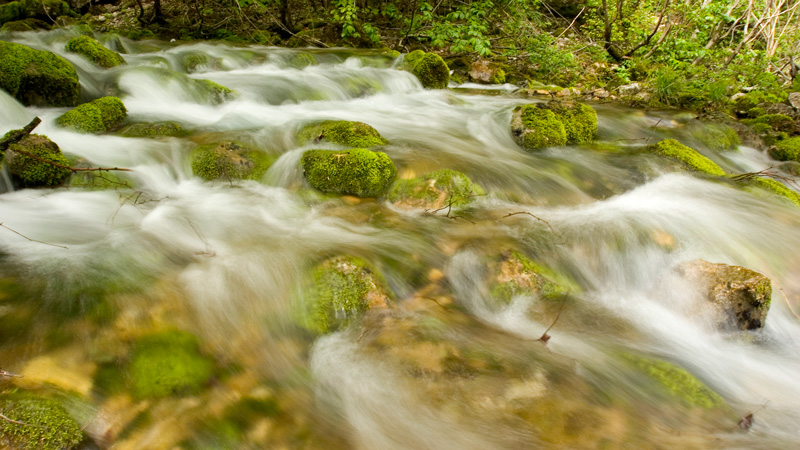The urbanisation of river valleys eliminates the typical and essential elements of fluvial systems, such as the riverbank vegetation that promotes water depuration, the meanders that slow down the water flow, the floodplains that attenuate the erosion of the river bed. Disastrous flooding phenomena are primarily due to urbanisation processes conducted without respecting the area of land that pertains to the rivers.
Pollution is another factor that applies pressure to the rivers. Besides the pollution due the massive amount of plastic that flows into waterways and, ultimately, into the seas, there is another widespread form of pollution caused by the chemicals – such as the pesticides and fertilizers used in farming –, which, from the soil, are transferred to the hydrographic network. Poor management of effluents, by means of old, centralised wastewater treatment plants, which cannot deal with fluctuating population densities, as is the case in vacation areas, and the use of spillways result in mixed water overflowing into the floodplains, without being treated, after heavy precipitation events. A solution may consist of providing decentralised wastewater treatment plants, consisting of smaller facilities distributed along the waterways, or adopting phytodepuration systems in sites at a considerable distance from the centre.
Photo credit: © Michel Gunther / WWF

